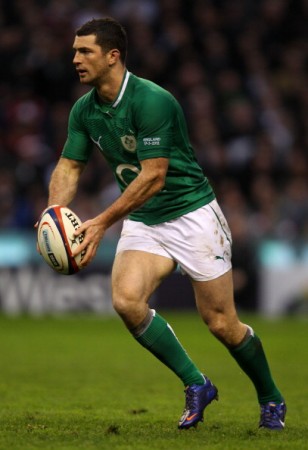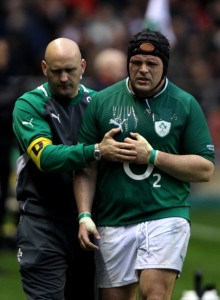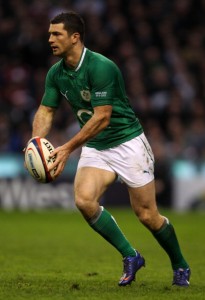By Claire Glancy
What a shocker! This generation of Ireland players and fans have got so used to beating England in the last decade that with this year’s match rounding off the tournament on St Patrick’s Day, the script for another Irish victory seemed to be written.
Not so.
After an error-ridden first half, with both sides relying on the kickers to rack up points, Ireland were still in the hunt. England took a three point lead into the break but the perception was they were having to work much harder than their opponents and if Ireland were to step up a gear then again this game would be theirs. But if there was a gear change at all, the men in green went into reverse and Ireland suffered another attack of second-half phobia (an all too familiar trait in this Championship) and produced what was arguably their worst performance under Declan Kidney.
Throughout the Six Nations the two major worries for Ireland have been their set piece and discipline. Since the opening the defeat to Wales, defence has been their strength. But on Saturday, all three areas were the fundamental the reasons behind the 30 – 9 defeat.
Let’s go for the obvious one and start with the scrum. Ireland hadn’t lost a scrum in the Championship until their visit to Twickenham where they lost three and only won the same amount. England on the other hand won 11 and lost 1. It is easy to blame the injury to Mike Ross and point the finger at Tom Court but a scrum is not built on one man alone. How did Ireland not generate more force through the second rows? Why didn’t the flanker engage and aid the prop more? The line-out which cost them so dear against Wales and France was a success but an international side cannot win if they can’t generate quality first phase ball on a regular basis. Add to this the high number of handling errors and knock-ons and it tells an uncomfortable story.
These are questions that Kidney will have to look at himself to find the answers. Graham Rowntree (the only member of the England coaching squad to come out of the 2011 World Cup with any credit) highlighted the need of quality coaching in that area. It is unacceptable at international level for the set piece to be so controlled by one side. England scored two tries, both from set piece penalties. Paul O’Connell was sorely missed up front as he would have taken ownership and dealt with the issues but it seemed that Ireland became rudderless in the second half and just allowed the scrum to disintegrate before their very eyes.
Throughout the tournament, discipline has been an issue for Ireland and in wet and tricky conditions at Twickenham this took on greater significance. Ireland conceded 12 penalties, double the amount of the English, which away from home against a good kicker makes it very difficult to win. By the time you add on 11 missed tackles to England’s six, it underlines that this was just a terrible day for Kidney’s men.
The loss will hurt all involved but it will be interesting to see how the players and staff react. There have been a few positives throughout the Six Nations, particularly the performances of Stephen Ferris and Rob Kearney. As everyone knows, the talent is there, so Ireland do not need to panic but they do need to take action. Their set piece has to improve if they are ever going to win major tournaments and they have to sort out the midfield… In truth Gordon D’Arcy looks a shadow of the great player he once was and while Brian O’Driscoll should be back in time for the summer tour to New Zealand, a plan needs to be formulated for the post-BOD era. Only two wins from five was not the Championship Ireland were expecting. Yes, a number of the players can turn their attention to the Heineken Cup quarter-finals but right now that’s little consolation.
Follow Claire Glancy on Twitter @claireglancy








